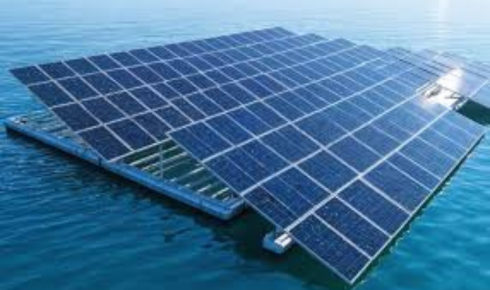In today’s energy-conscious world, the push for renewable energy sources is stronger than ever. Among the many green technologies available, solar energy continues to lead the way in both residential and industrial applications. One of the most impactful and cost-effective uses of solar energy is the solar water heating system, which is increasingly being adopted in homes, hotels, hospitals, and industries alike. Additionally, large-scale solar industrial solutions are transforming how manufacturing and production units consume energy.
What is a Solar Water Heating System?
A solar water heating system uses solar energy to heat water for domestic, commercial, or industrial use. It typically consists of solar collectors, a storage tank, a heat exchanger, and a fluid system to move the heat from the collector to the tank.
There are two main types of solar water heaters:
- Flat Plate Collectors (FPCs): Durable and suitable for most climates, these are the most commonly used in residential applications.
- Evacuated Tube Collectors (ETCs): More efficient in colder regions or where high-temperature water is needed, these are gaining popularity in commercial and industrial sectors.
These systems are especially effective in sunny regions and can supply hot water even during cloudy days with the help of a backup heating source.
Benefits of Solar Water Heating
The advantages of using a solar water heater are numerous:
- Significant Cost Savings: Once installed, you can drastically reduce electricity or gas bills for water heating.
- Eco-Friendly: Reduces dependence on fossil fuels and cuts greenhouse gas emissions.
- Low Maintenance: Solar water heaters are reliable and require minimal upkeep.
- Long Lifespan: With proper maintenance, these systems can last 15–20 years or more.
- Government Subsidies: Many state and central government schemes offer financial support for installation.
Growing Demand in Residential and Commercial Sectors
In residential setups, solar water heating systems are ideal for daily hot water needs. Homes, apartments, and housing societies benefit greatly by reducing electricity consumption for geysers or electric heaters.
In commercial buildings like hotels, hostels, and hospitals, where hot water demand is high throughout the day, these systems ensure a consistent supply without burdening the electrical grid.
Solar Industrial Applications: A Step Towards Sustainable Manufacturing
As industrial energy demands continue to soar, the need for cleaner energy alternatives is urgent. Solar industrial applications have opened up new avenues for businesses to reduce operational costs and carbon emissions.
Industries such as textiles, pharmaceuticals, dairy, food processing, and chemical manufacturing require a large amount of thermal energy for processes like boiling, drying, pasteurizing, and sterilizing. Solar thermal systems can meet a significant portion of these energy needs.
Key components of solar industrial systems include:
- High-capacity solar collectors
- Heat exchangers
- Thermal storage units
- Integrated automation for temperature control
These systems can be designed for specific temperature and pressure requirements, making them highly adaptable across different sectors.
Advantages of Industrial Solar Energy Solutions
- Reduces Fuel Costs: Solar energy can supplement or even replace traditional fuels like diesel, LPG, or natural gas.
- Energy Independence: Protects businesses from fluctuating fuel prices.
- Corporate Sustainability: Improves a company’s environmental footprint and brand image.
- Government Incentives: Accelerated depreciation benefits and capital subsidies are available for industrial solar adoption.
Choosing the Right Solar Partner
To get the most out of your solar investment, it’s essential to work with a certified and experienced solar energy provider. They can assess your energy needs, provide customized solutions, and offer installation and post-sales support.
Factors to consider:
- Proven track record and customer reviews
- Use of high-quality materials and certified components
- Warranty and maintenance support
- Assistance with government subsidies and documentation
Conclusion
Whether you’re looking to cut down on household electricity bills or aiming to make your factory operations greener, solar energy offers a viable and efficient solution. A solar water heating system is perfect for homes and businesses needing reliable hot water, while solar industrial systems are changing the game for large-scale energy consumers. Now is the ideal time to invest in solar technology and join the movement toward a more sustainable and energy-efficient future.





